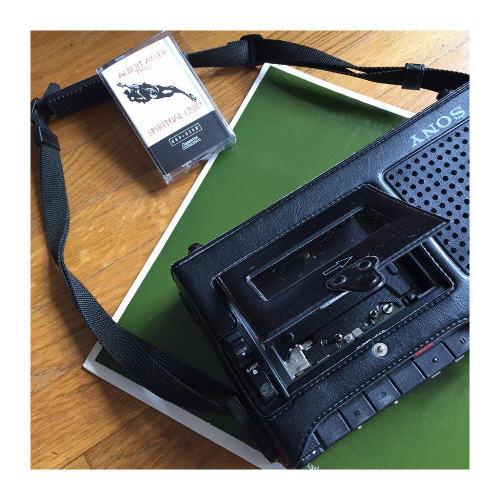|
Music Is The Healing Force Of The Universe The Inconsistency of |
|
|
||||||||||||||||
|
News from 2017 - January to May
January 3 2017
Happy New Year Sorry it’s a bit late. * An Ayler Xmas Not Bernard Stepien this time, but Mars Williams (of Psychedelic Furs fame), who presented a series of concerts in New Orleans and Chicago in December. |
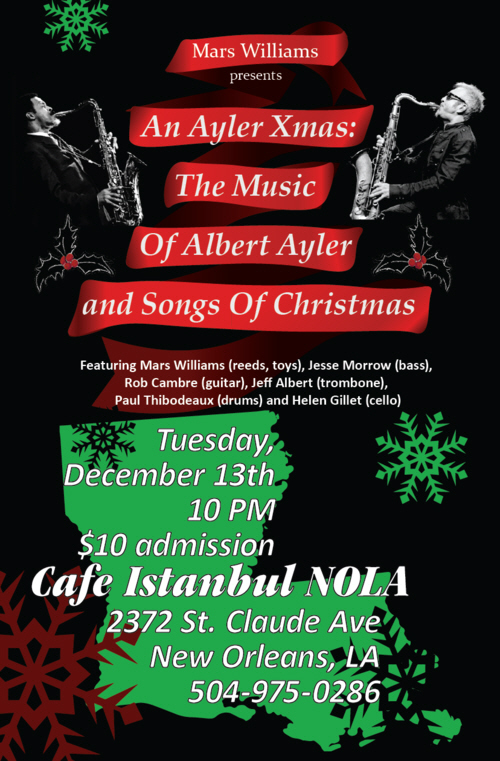 |
||||||||
|
The Chicago concert took place at the Hungry Brain on 18th December with the following line-up: * Point of Departure Thanks to Pierre Crépon, who, as well as letting me know that the ESP catalog is now available on the Bandcamp site, also told me about a couple of interesting articles in the latest edition of Point of Departure. One is an interview with Abdul Wadud by Joel Wanek and Tomeka Reid, which mentions Ayler in passing, but gives a lot of information about the Cleveland jazz scene. I have to admit I wasn’t really au fait with Abdul Wadud but it turns out he played cello on one of my favourite tracks: ‘The Hard Blues’ from Julius Hemphill’s album, ‘Coon Bid’ness. The other article is Pierre’s obituary of the saxophonist, Marco Eneidi, who died on 24th May last year. Pierre also included a link to the Inconstant Sol site which has details of a rare Jackson Krall cassette of a recording of a 1991 concert by the Associated Big Band, which included Marco Eneidi, and featured a version of ‘Ghosts’. Here’s the cassette insert, and the track is available in flac or mp3 formats. |
||||||||
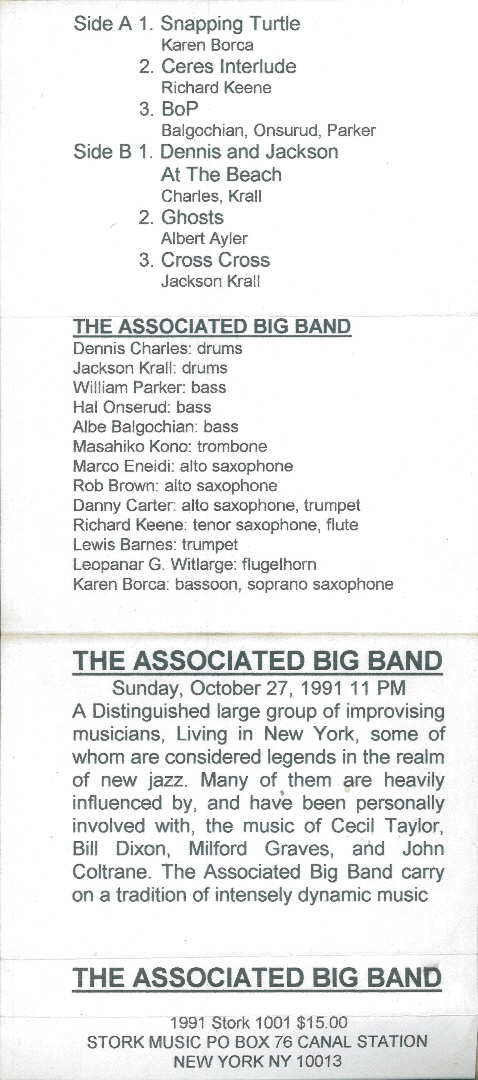 |
||||||||
|
New Wave In Jazz and Sunny Murray Kees Hazevoet sent me a couple of interesting items. A double review of The New Wave In Jazz (the Impulse compilation LP which included Ayler’s ‘Holy Ghost’) from Down Beat of 27th January, 1966. Not really a case of ‘so good they reviewed it twice’, actually this was another example of Down Beat’s reaction to the terrifying implications of the avant-garde (I remember they did the same thing with Coltrane’s Meditations). I’ve placed it in the Record Reviews section, but here’s the pdf. And an interview with Sunny Murray (by Spencer Weston, transcribed by Bob Rusch) from the June, 1979 issue of Cadence. Again, that’s now in the Interviews section, but here’s the pdf. Thanks Kees. * Belly-band And thanks to Dirk Goedeking who found this photo of Nuits de la Fondation Maeght Vol. 1 with its original ‘belly-band’ on the merzbo-derek site. |
||||||||
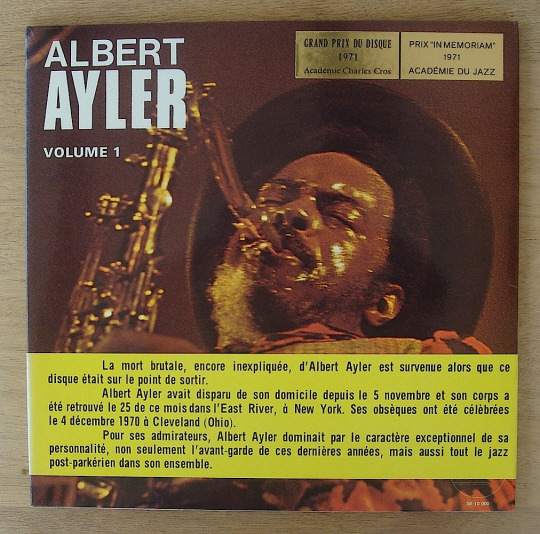 |
||||||||
|
And finally ... To round off this rather hurried first update of the year, here’s a rendering of Don Ayler’s ‘Our Prayer’ by a group featuring John Oslansky, Grencsó István (ss), Reinhardt Csaba (ts), György Erika (v), Benkőo Róbert, Schneider Vilmos (b), Jakab Miklós, Lukács Péter (d) recorded in August last year in Nagymaros, Hungary. A suitably sombre ending to the year just gone and perhaps a foreshadowing of the one just begun.
|
||||||||
|
February 1 2017
Musica Jazz Thanks to Johann Haidenbauer for letting me know about the January 2017 edition of the Italian magazine, Musica Jazz, which had a feature on Albert Ayler. |
||||||||
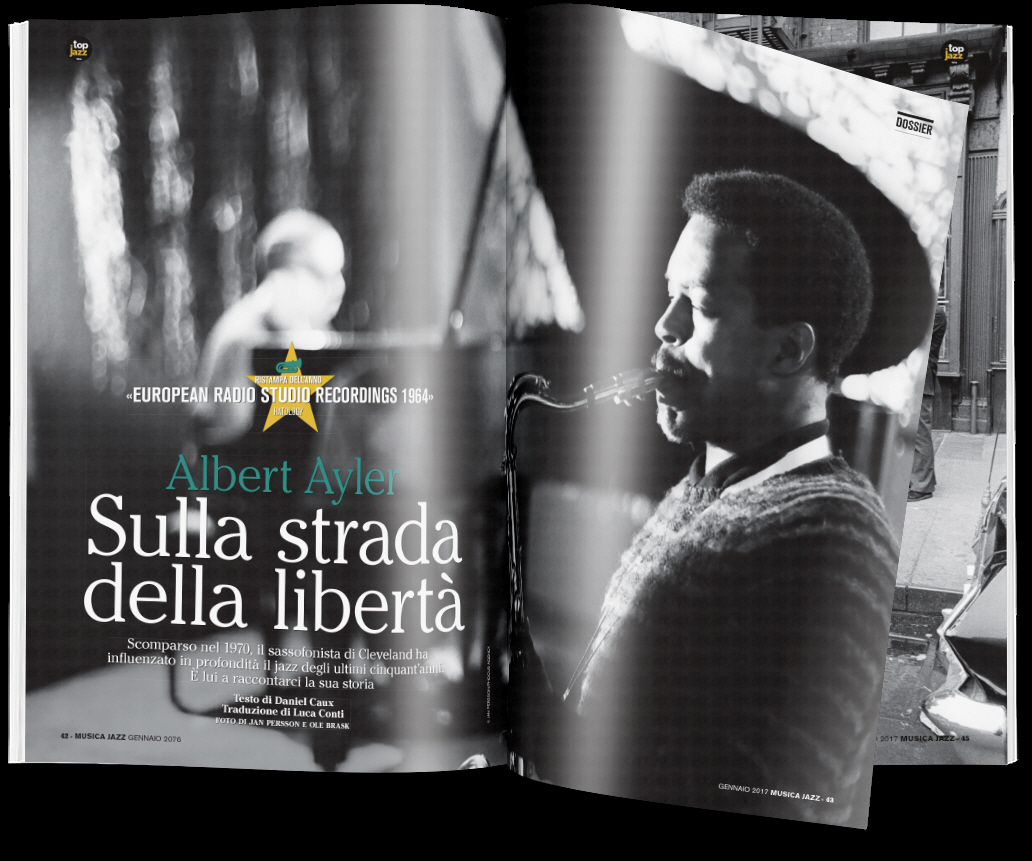 |
|
As well as the Italian translation of Daniel Caux’s interview with Albert Ayler (which was originally published in L’Art Vivant in February 1971, and an English translation of which, entitled ‘The Road To Freedom’, appeared in The Wire in January 2003) this issue of Musica Jazz also includes a sampler CD featuring the track, ‘No Name’, taken from the recent Hathut release of European Radio Studio Recordings 1964 (originally issued as The Hilversum Session). Click the pictures to see them bigly (!) |
|||||||||
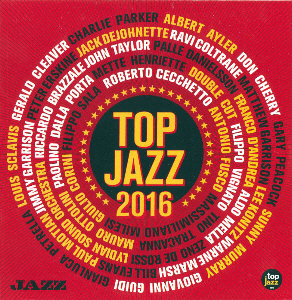 |
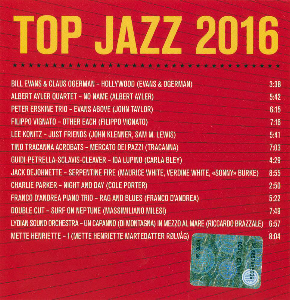 |
||||||||
|
A Timely Warning It’s a far cry from the olden days when amongst les enfants terribles of the avant-garde, Albert Ayler was definitely the terrible-ist. I came across the following items from the British jazz magazine, Crescendo, on the National Jazz Archive site. Crescendo, September, 1965: |
|||||||||
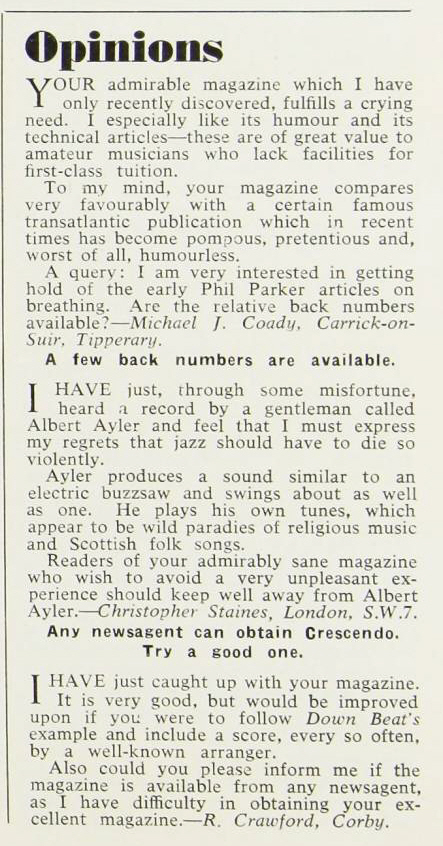 |
|||||||||
|
Crescendo, February 1966: |
|||||||||
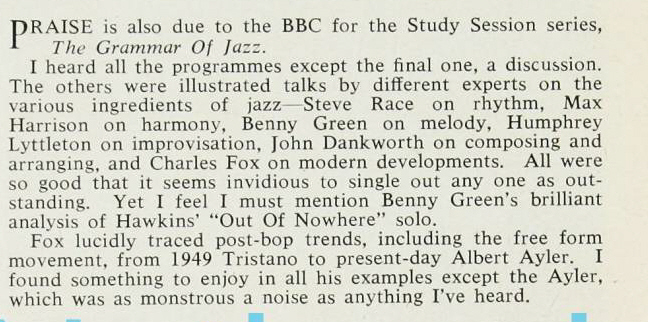 |
|||||||||
|
Crescendo, May 1966: |
|||||||||
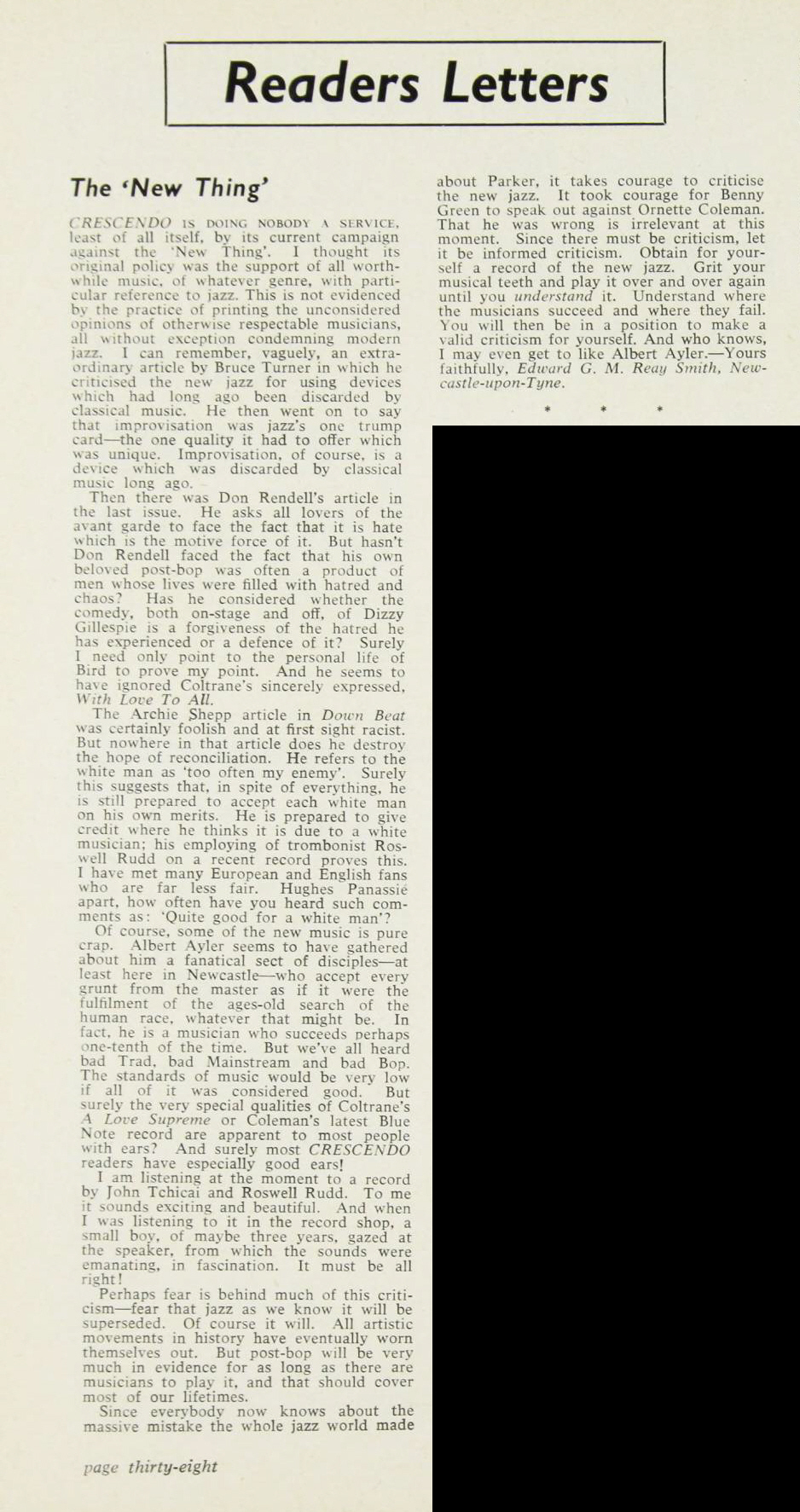 |
|
Crescendo, February 1967: |
||||||||||||||||||
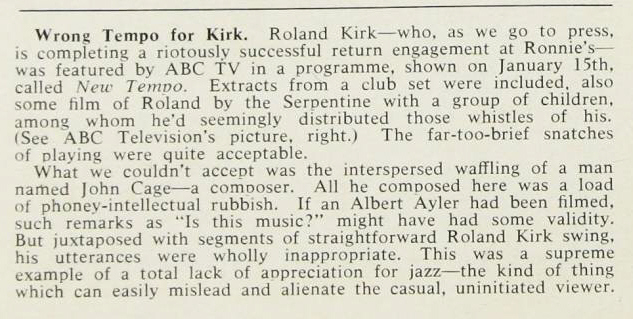 |
||||||||||||||||||
|
I remember watching that on a Sunday afternoon - it’s on youtube now. * Angels and Ghosts Last June I mentioned a New York Times review of a concert by Diamanda Galás in which she “turned a wordless Albert Ayler melody, ‘Angels,’ into soaring phrases that merged Ayler’s saxophone vibrato with operatic style.” The concert was recorded and the CD, At Saint Thomas the Apostle Harlem, will be released next month. |
||||||||||||||||||
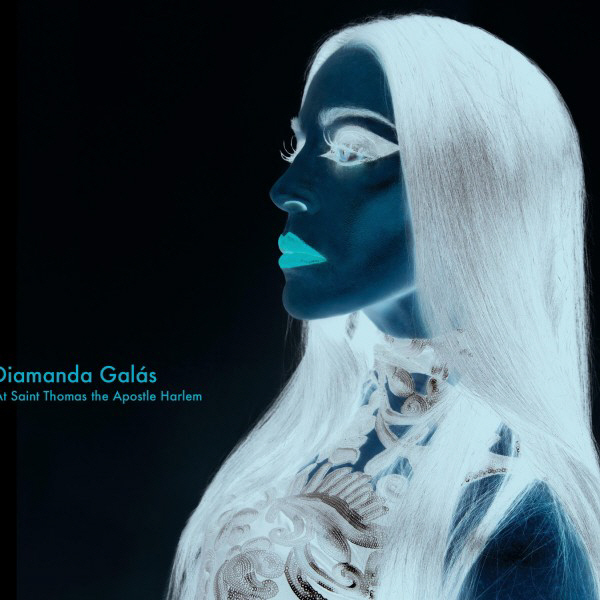 |
||||||||||||||||||
|
Perhaps weirder is the inclusion of ‘Ghosts’ and ‘Angels’ on a baseball-themed CD by Brad Linde’s Team Players. All-American is available on the bandcamp site. |
||||||||||||||||||
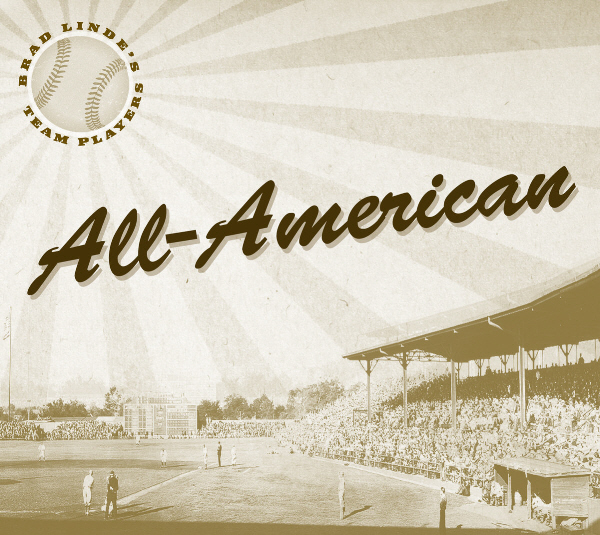 |
||||||||||||||||||
|
Kasper Collin and Ghosts on a lute Three items from youtube to end with. A Q & A session with Kasper Collin following the screening of his new film about Lee Morgan, I Called Him Morgan, at the New York Film Festival. And two versions of ‘Ghosts’, one by the Thomas Milovac Unit and this one by François Rascal on the oud (looks like a lute to me).
|
||||||||||||||||||
|
March 1 2017
Another Hilversum There’s a new vinyl release of The Hilversum Session on the Modern Silence label: |
||||||||||||||||||
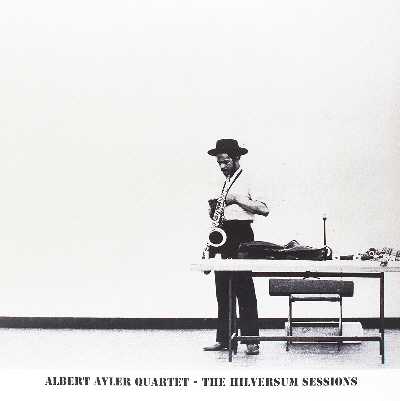 |
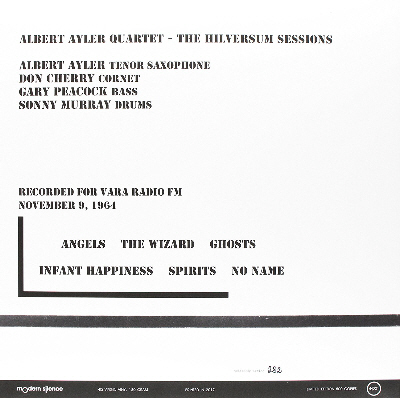 |
|||||||||||||||||
|
So, at the moment there are three versions of The Hilversum Session available - one from ESP in the U. S., one from Hathut (as part of European Radio Studio Recordings 1964) in Switzerland, and this new one from Malta. * Australia And, to continue the world tour, how about this for an oddity, which Dirk Goedeking came across: |
||||||||||||||||||
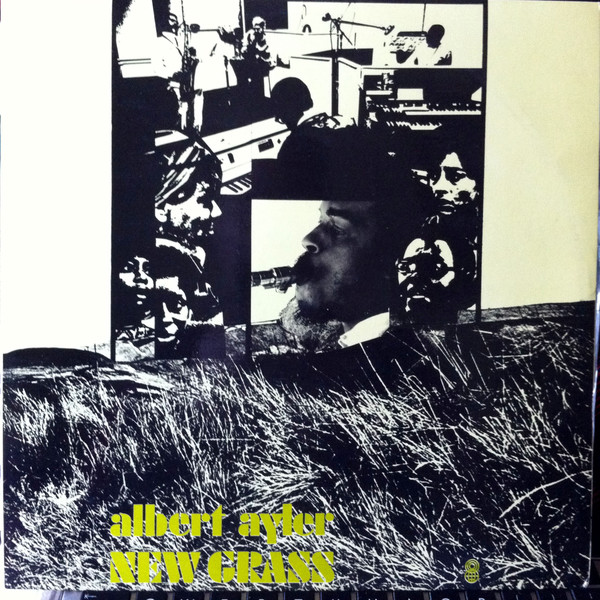 |
||||||||||||||||||
|
That’s the cover of New Grass, released in 1975 in Australia on the World Record Club label. More pictures on the New Grass Covers page. * Germany Dirk also let me know about a new e-book by prize-winning author Friedrich Christian Delius, Albert Ayler oder Die Zukunft der Schönheit (Albert Ayler or The Future of Beauty). |
||||||||||||||||||
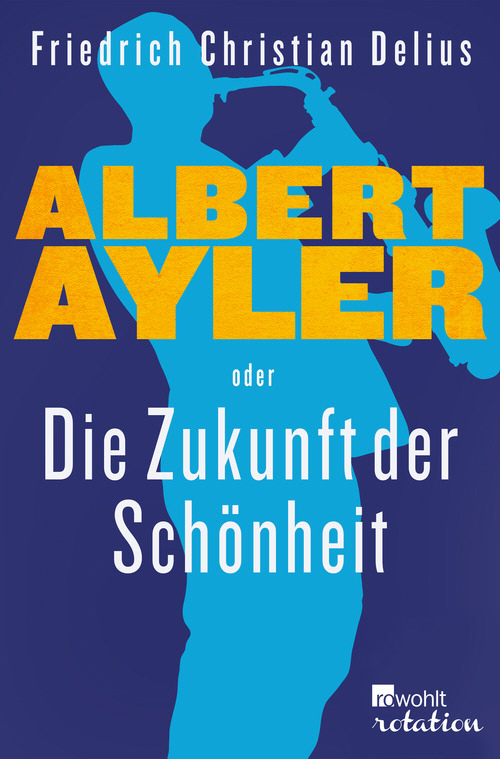 |
||||||||||||||||||
|
According to Dirk, the book is about the author’s “visit to Slug's Saloon on 1st May 1966, during a journey to the States. He describes the setting, the music and what’s happening in his head, being exposed to music he never heard before. His thoughts follow the lines of the five recorded album tracks. Sadly it's only available in German so far.” And, google’s translation of the book’s blurb is not too bad, so I’ll add it here: ‘ “Albert Ayler or The Future of Beauty” is a story by Friedrich Christian Delius, winner of the Büchner Prize. On the evening of May 1, 1966, a young German enters Slug’s Saloon in New York, the legendary club of the jazz avant-garde. On the stage stands the tenor saxophonist Albert Ayler and plays a music that is different than anything his German guest has ever heard before. Ayler’s improvisational frenzy draws the young man into the wake of free jazz, triggers a clairvoyant frenzy of association, opens his ears and eyes: he hears the angry indictment of the Vietnam War, thinks of his own protest, his youth in the small town of Hesse and a jazz evening, which led to the disintegration with the sick father. Finally, the poet arrives to see how a new, new beauty and truth arises from the decomposition of music. An autobiographical story and a virtuoso literary sound document, which not only captures a great jazz experience, but also the liberating power and the spirit of a new epoch, a new, unheard-of art.’ More information available on the publisher’s website. * Ayler and Ives In Daniel Caux’s interview with Albert Ayler at the Fondation Maeght, Albert says the following: “An artist’s life is very hard so I must adjust myself now, because I know men who have died, like Charles Ives, the greatest composer in America, and while he was living nobody recognised him at all. He had to get a different job altogether.” I came across this review of a new Charles Ives CD on theartsdesk.com: “Ives arr. Hofbauer: Three Places in New England Eric Hofbauer Quintet (Creative Nation Music) Charles Ives’s best-known "orchestral set" Three Places in New England usually lasts about 20 minutes. Guitarist Eric Hofbauer’s ingenious arrangement is looser than his brilliant transcription of Stravinsky’s Rite, the three pieces lasting twice as long. All for the good; the extra legroom allows Ives’s tunes to breathe, unencumbered by layers of orchestral murk. The music’s vernacular roots have never been more lucidly exposed. This music is full of appealing diatonic melodies, though Ives tends to superimpose them in different keys. You suspect that he’d have enjoyed Hofbauer’s jazzier interpolations, like the extended blues near the close of The ‘St. Gaudens’ in Boston Common. Ives’s music can be a slog if played in too heavy-handed a manner. But this small-scale version of Putnam’s Camp is a revelation, an intoxicating slice of goofy jazz, with trumpeter Jerry Sabatini taking a starring role. Hofbauer inserts Albert Ayler’s Ghosts at the start of the central dream section, sneakily interrupted by muted trumpet and Todd Brunel’s clarinet. The final seconds are uproarious, capped by Brunel’s spectacular upward glissando. If you’re not smiling, you’ve no soul. The Housatonic at Stockbridge opens with the mellowest of cello solos accompanied by insectile guitar figurations. And the shattering climax is overwhelming, even delivered by chamber forces. Newcomers to Ives should start with his Symphony No. 2. Then move on to this disc.” I mention it here, because I have no idea where else to put it. More information is available on the bandcamp site. |
||||||||||||||||||
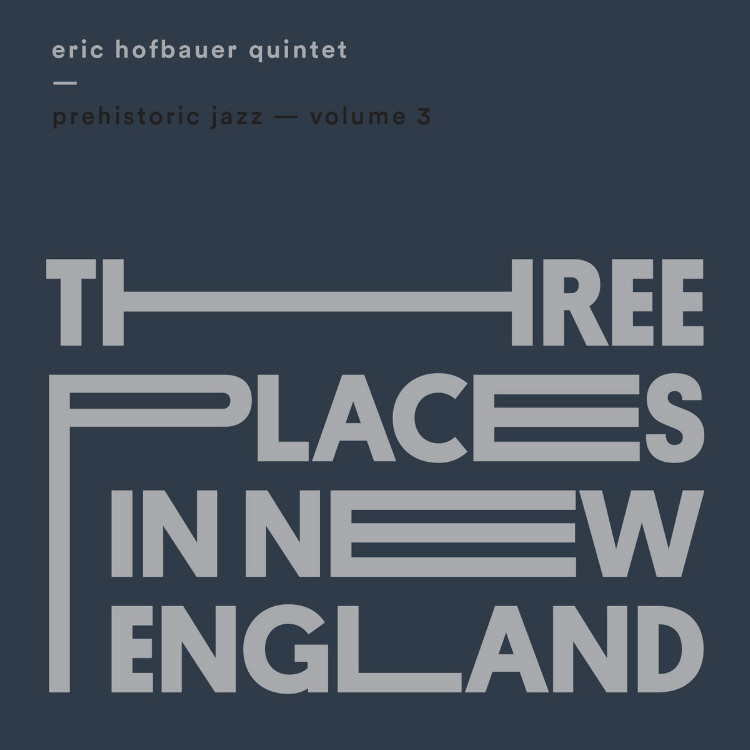 |
||||||||||||||||||
|
For the man who has everything . . . Check out Mats Gustaffson’s record collection and where he keeps it in The Vinyl Factory magazine. After the initial, “bloody ’ell”, one does wonder when he finds the time to listen to it all. Here’s his collection of Bells. |
||||||||||||||||||
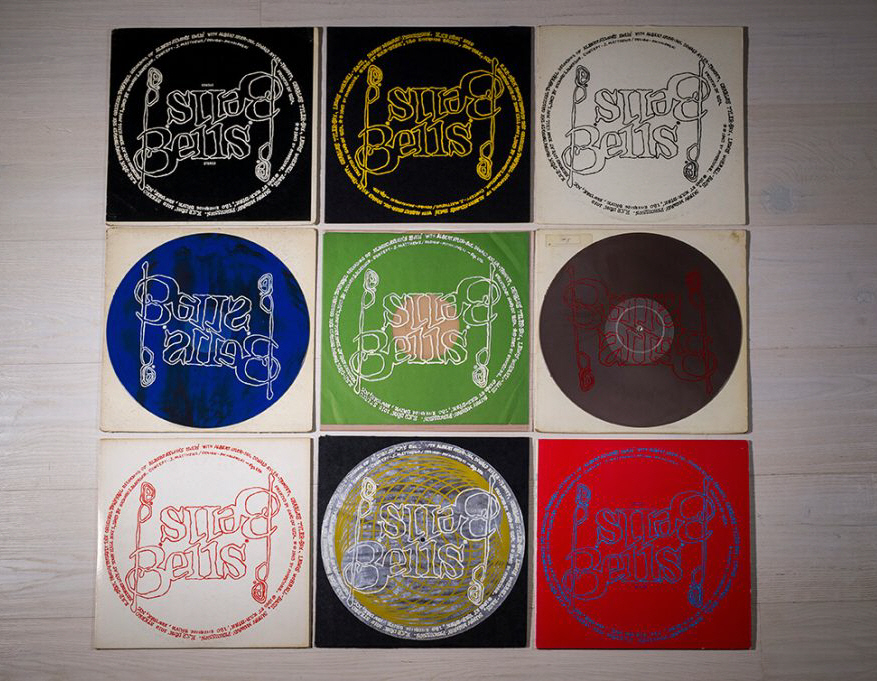 |
|
I note he has not got the rubbish version I bought, where they forgot to do the silkscreening so the vinyl is perfectly clear. * Ghosts again Another version of ‘Ghosts’ by Universal Indians (John Dikeman (ts), Jon Rune Strom (b), Tollef Østvang (d)) recorded at Studio Loos, The Hague, Netherlands on 21st February this year.
|
|
And a marching medley This one’s not so recent, the Japanese group, Cicala-Mvta, recorded at the Rock In Opposition Festival, Maison de la Musique, Cap'Découverte, Le Garric, France on 17th September, 2016
|
|
And finally . . . Dirk Goedeking also sent me some more Mary Maria lyrics, including ‘A Man Is Like A Tree’ - let joy be unconfined. *** April 1 2017
Copenhagen Live 1964 |
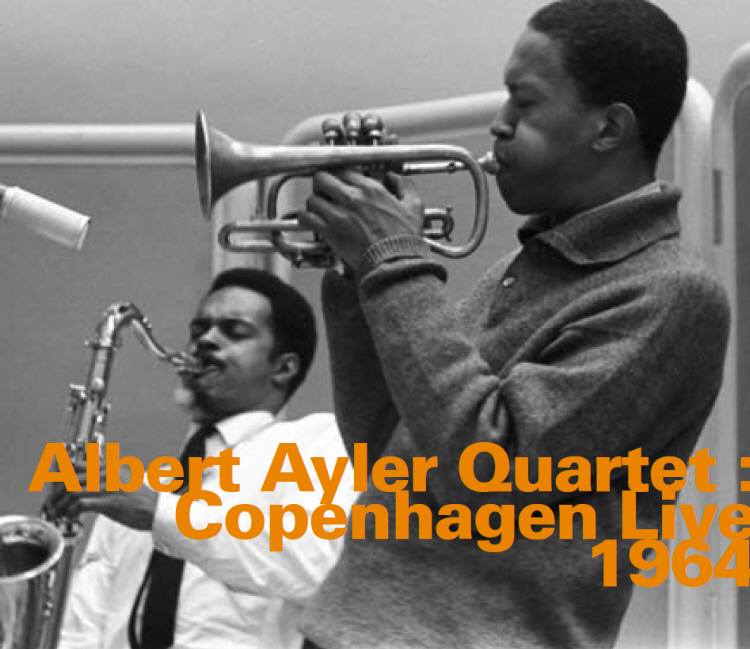 |
|
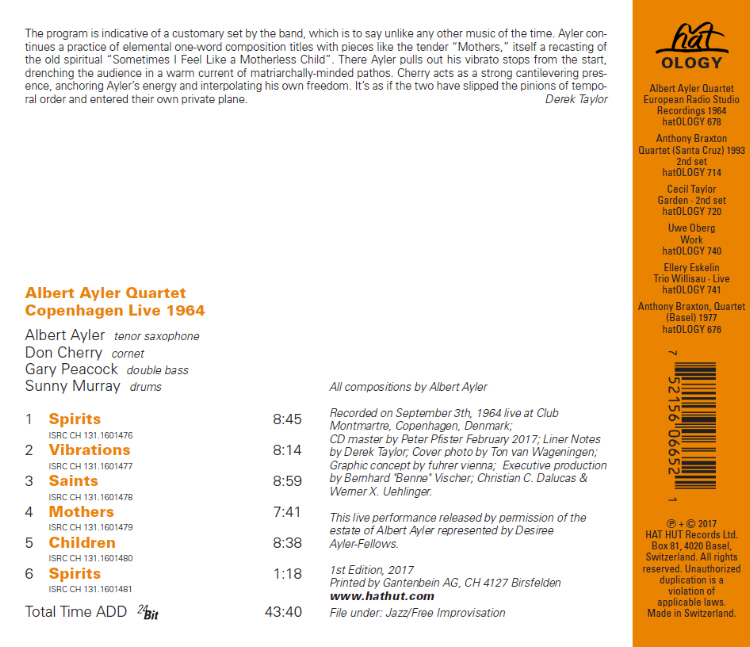 |
|
|
This is a new release (hatOLOGY 665) from Hat Hut Records of the Cafe Montmartre session from 3rd September, 1964. Three of the tracks originally appeared on the Philology LP which was given away free with the Italian ‘Musica Jazz’ magazine in November, 1990. They were then reissued on the French CD, Live in Europe 1964-1966. In 2002 the full session was released as The Copenhagen Tapes by Ayler Records, and then appeared as part of the Holy Ghost box set. Since these latter two releases are no longer available it’s good to have the recordings back in the catalogue. The other three tracks from The Copenhagen Tapes (from a 10th September radio session) were included in last year’s release from Hat Hut, European Radio Studio Recordings 1964 (hatOLOGY 678). More details are available on this .pdf. * Ayler on Cassette!!!!! Well, this is something the world’s been waiting for. ESP have joined forces with Personal Affair to bring out their back catalog on cassette tapes, starting with Spiritual Unity. |
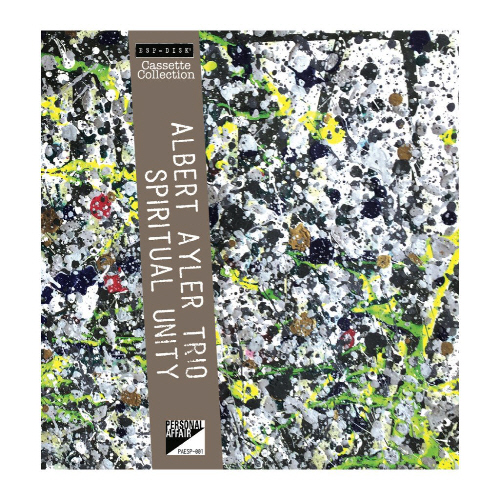 |
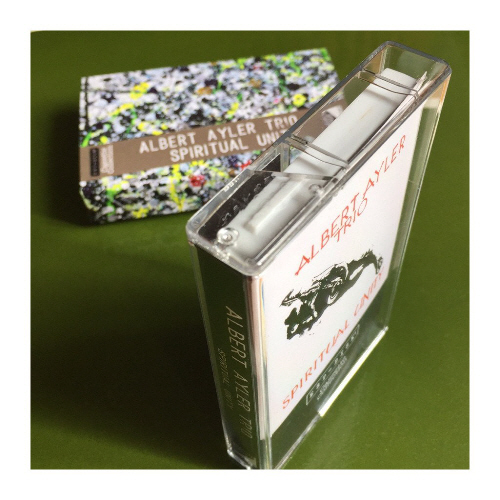 |
|
‘ESP-Disk’ Cassette Collection - Albert Ayler: Spiritual Unity - Limited Edition Personal Affair is proud to announce “ESP-Disk’ Cassette Collection,” an officially licensed release from the Brooklyn based legendary Jazz label, ESP-Disk’, founded by Bernard Stollman. This is the first cassette release of ESP's back catalogue. The first release (PAES-P001) from the collection is Albert Ayler Trio’s “Spiritual Unity,” ESP’s first recording session from 1964. The release includes a bonus track “Vibrations” and comes in a limited edition special packaging.” |
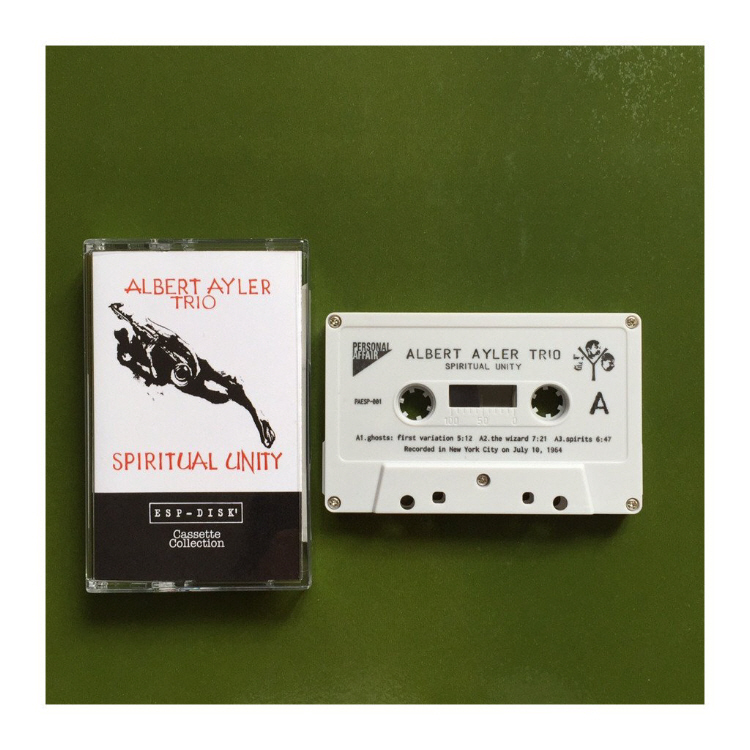 |
|
|
|
Just to clarify, the ‘bonus track’ is the duplicate version of ‘Spirits’ which appeared on the early pressings of Spiritual Unity. In 2014 ESP released a 50th Anniversary Expanded Edition CD which included the ‘alternate take’, now renamed ‘Vibrations’, and this five track version of Spiritual Unity is the one now available on cassette. * MusicMusicMusic George Scala and Dirk Goedeking both emailed me with the details about the Spiritual Unity cassette (can the wax cylinder be far behind?) but for once I was ahead of the game, having been alerted to its imminent release by ESP’s Steve Holtje. And then Steve Tintweiss sent me a link to Steve Holtje’s blog, MusicMusicMusic, which has some very interesting stuff on it, including a post about Albert Ayler. * Kasper Collin Lots of reviews of Kasper Collin’s I Called Him Morgan out there (The Daily Beast, Film Journal, Frost Illustrated, A.V. Club, Paste Magazine, Houston Press and others) all giving a passing mention to My Name Is Albert Ayler, which was shown at the Belfast Film Festival on 9th March. * Albert Ayler Awareness Orchestar 10 Year Anniversary Concert On March 26th at the Bop Stop in Cleveland, RA Washington reprised ‘Along The Eastern Shore’, a celebration of the life and music of Albert Ayler, first performed ten years ago. |
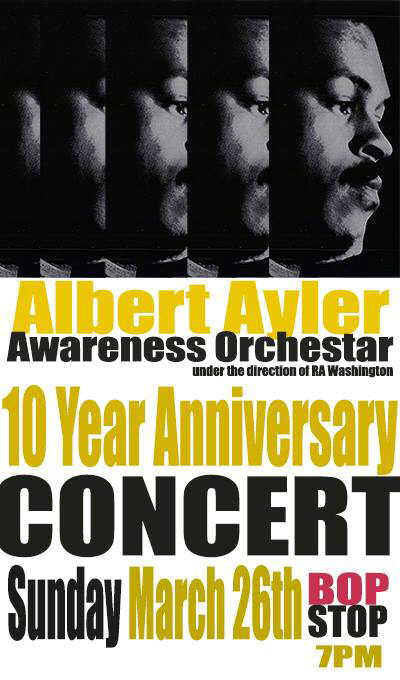 |
|||||
|
‘In 2007, a group of Cleveland musicians gathered to put on what was supposed to be a one time celebration of the music and life of Cleveland’s own, Albert Ayler. The piece, entitled “Along The Eastern Shore” was premiered as part of Ingenuity Fest and featured Lawrence Daniel Caswell, Daniel Gray Kontar, Dan Wenninger, Chris Kulscar, Bill Nichols, Neil Chastain, Louis Arrocho Jr, Buddy Akita and Lamont “Bim” Thomas. Director, RA Washington, is delighted to have the opportunity to share this work with the public again on Sunday, March 26th at 7pm. There will be a “pay as you want” donation at the door because the band wants to keep the show affordable to all. Proceeds from the show will help the band record this piece to vinyl.’ There’s a clip of the original performance on youtube. * And finally . . . Thanks to Dirk Goedeking for noticing this - guitarist Asgar Sogaard’s interpretation of Call Cobbs’ introduction to Albert Ayler’s version of ‘Goin’ Home’.
|
|||||
|
And here’s a version of ‘Love Flower’ from 2014 by the Pordenone Big Band, featuring Federico Missio.
|
|||||
|
May 1 2017
Prophecy on vinyl ESP are releasing Prophecy on vinyl on 2nd June. |
|||||
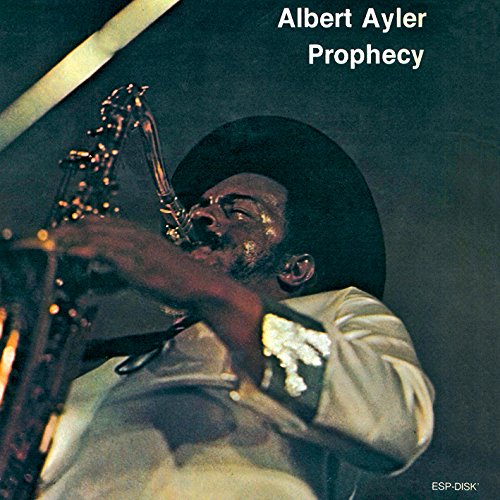 |
|||||
|
New York Eye And Ear Control I came across The Collected Writings of Michael Snow, which has an ‘essay’ on New York Eye And Ear Control (pp. 20-25). However, I must admit, I found this extract from a 1971 interview with Snow (pp. 68-80), conducted by Joe Medjuck for the Canadian film magazine, Take One, more enlightening. |
|||||
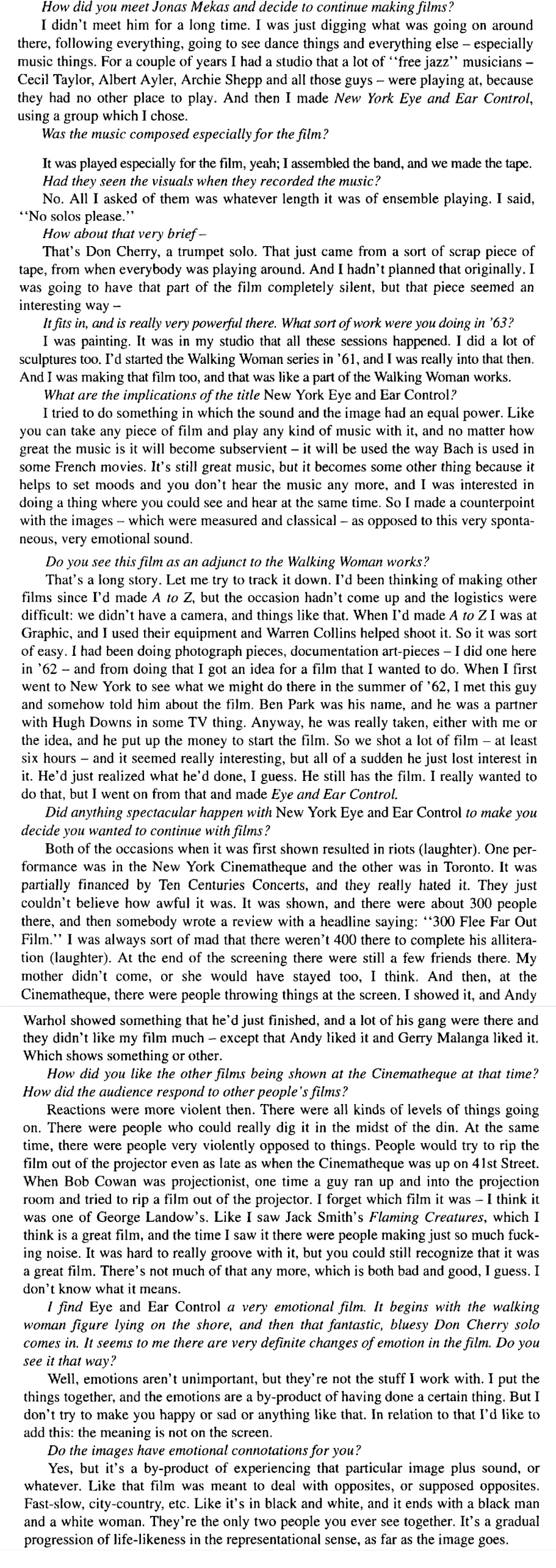 |
|
I’m sure I’ve not come across that explanation of why there’s that short Don Cherry track on the LP, and later in the interview there’s this: |
 |
|
Three from Vimeo 1. Back in 2015 I mentioned Jason Bivins’ book, Spirits Rejoice! Jazz and American Religion, which had an obvious Ayler connection. And here is Dr. Bivins himself giving a lecture on Albert Ayler at the University of Alabama.
The Fourth Annual Day Lecture 2016: Dr. Jason Bivins, Episode 3 from UA Religious Studies on Vimeo. |
||
|
2. Sean Burn’s ‘Ayler’
|
||
|
More information on Sean Burn is available on the Mad Studies North East site. 3. And finally . . .
Jury Duty Dances from Annie Peacenik on Vimeo. |
||
|
*** News from 2004 (January - June) 2004 (July - December) 2005 (January - May) 2005 (June - December) 2010 (January - June) 2010 (July - December) 2011 (January - May) 2011 (June - September) 2011 (October - December) 2012 (January - May) 2012 (June - December) 2013 (January - June) 2013 (July - September) 2013 (October - December) 2014 (January - June) 2014 (July - December) 2015 (January - May) 2015 (June - August) 2015 (September - December) 2016 (January - March) 2016 (April - June) 2016 (July - August) 2016 (September - December) 2017 (June - September) 2017 (October - December) 2018 (January - May) 2018 (June - September) 2018 (October - December) 2019 (January - May) 2019 (June - September) 2019 (October - December) 2020 (January - April) 2020 (May - August) 2020 (September - December) 2021 (January - March) 2021 (April - July) 2021 (August - December) 2022 (January - April) 2022 (May - August) 2022 (September - December) 2023 (January - March) 2023 (April - June) 2023 (July - September) 2023 (October - December) 2024 (January - March) 2024 (April - June) 2024 (July - September) 2024 (October - December)
|
||
|
Home Biography Discography The Music Archives Links What’s New Site Search
|
||

